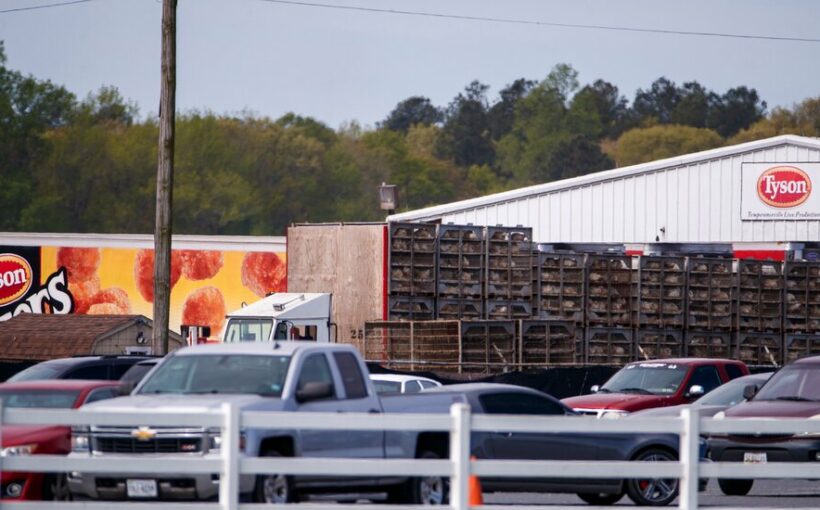Tyson Foods is recalling nearly 8.5 million pounds of frozen chicken that may have been contaminated with listeria, the Agriculture Department said.
The voluntary recall was issued after Agriculture Department investigators were notified last month about two people who had been sickened with listeriosis, the department said in a statement on Saturday.
An investigation found evidence linking those cases to frozen chicken from Tyson Foods, the agency said. Investigators eventually identified three cases linked to the recalled products, including one death, the department said.
Symptoms of listeriosis, an infection caused by the bacterium Listeria monocytogenes, include fever, convulsions, muscle aches and gastrointestinal issues, according to the Agriculture Department.
The recalled products were frozen, fully cooked chicken produced between December and April, the department said. The products include chicken strips, chicken pizza and pulled chicken breasts that were sold under brand names including Tyson, Jet’s Pizza and Casey’s General Store.
The packages have the “establishment code” P-7089 printed on them, the department said.
In a statement, Tyson Foods said the recalled products were produced at a plant in Dexter, Mo. The company distributed the chicken to stores, hospitals, schools, restaurants and other locations, the Agriculture Department said.
“We’re committed to providing safe, healthy food that people rely on every day,” Scott Brooks, senior vice president for food safety and quality assurance at Tyson Foods, said in the statement. “We are taking this precautionary step out of an abundance of caution and in keeping with our commitment to safety.”
The Agriculture Department said it would continue its investigation to determine if additional listeriosis cases were linked to the recalled products.
The department urged people to throw away or return the recalled chicken. Pregnant women, adults over 65 and people with weakened immune systems are most susceptible to a serious case of listeriosis, according to the Centers for Disease Control and Prevention. Symptoms usually develop one to four weeks after eating food contaminated with listeria.
Source: Read Full Article
